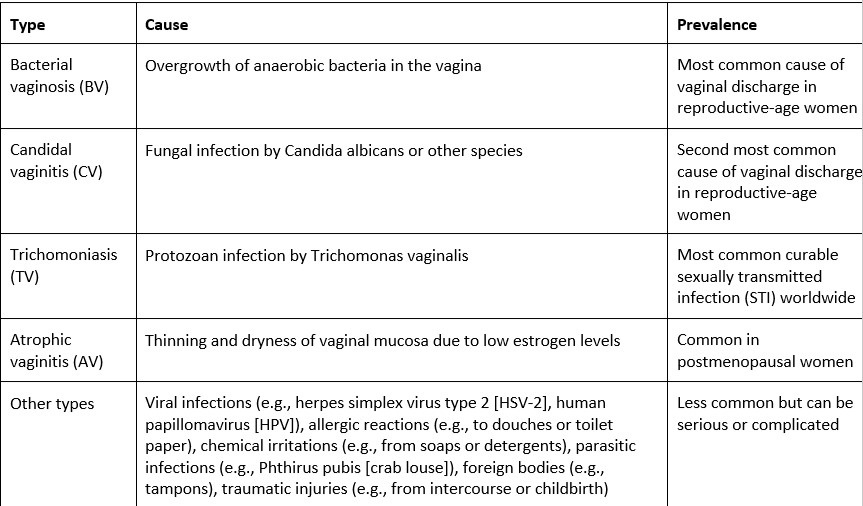Types and Distribution
- There are several types of vulvovaginitis that have different causes, characteristics, and prevalence. Some of the common types are:

Nursing Test Bank
Quiz #1: RN Exams Pharmacology Exams
Quiz #2: RN Exams Medical-Surgical Exams
Quiz #3: RN Exams Fundamentals Exams
Quiz #4: RN Exams Maternal-Newborn Exams
Quiz #5: RN Exams Anatomy and Physiology Exams
Quiz #6: RN Exams Obstetrics and Pediatrics Exams
Quiz #7: RN Exams Fluid and Electrolytes Exams
Quiz #8: RN Exams Community Health Exams
Quiz #9: RN Exams Promoting Health across the lifespan Exams
Quiz #10: RN Exams Multidimensional care Exams
Naxlex Comprehensive Predictor Exams
Quiz #1: Naxlex RN Comprehensive online practice 2019 B with NGN
Quiz #2: Naxlex RN Comprehensive Predictor 2023
Quiz #3: Naxlex RN Comprehensive Predictor 2023 Exit Exam A
Quiz #4: Naxlex HESI Exit LPN Exam
Quiz #5: Naxlex PN Comprehensive Predictor PN 2020
Quiz #6: Naxlex VATI PN Comprehensive Predictor 2020
Quiz #8: Naxlex PN Comprehensive Predictor 2023 - Exam 1
Quiz #10: Naxlex HESI PN Exit exam
Quiz #11: Naxlex HESI PN EXIT Exam 2
Questions on Types and Distribution
Correct Answer is D
Explanation
Intravenous fluid therapy (IVF) is the appropriate intervention for severe dehydration. IV fluids rapidly restore fluid balance and correct electrolyte imbalances, ensuring timely rehydration and preventing complications.
Correct Answer is B
Explanation
Giving aspirin to a child with fever is contraindicated due to the risk of Reye's syndrome, a potentially fatal condition. Acetaminophen is the preferred antipyretic.
Correct Answer is D
Explanation
Checking vital signs is essential before giving any medication to ensure the client's overall stability and to detect any potential contraindications or adverse reactions.
Correct Answer is C
Explanation
Douching regularly is not advised, as it disrupts the natural balance of vaginal flora and increases the risk of infections and irritation.
Correct Answer is B
Explanation
Human papillomavirus (HPV) doesn't typically cause the described discharge. It's associated with genital warts and cervical changes but not with this type of discharge.
Correct Answer is A
Explanation
Allergic reactions to douches might cause irritation, itching, or redness, but they wouldn't lead to a fishy odor.
Correct Answer is C
Explanation
Low estrogen levels would not cause this specific presentation; they're more associated with vaginal dryness and thinning of vaginal walls.
Correct Answer is A
Explanation
Increasing the intake of sugary foods is not recommended for vulvovaginitis prevention. High sugar consumption can lead to an overgrowth of yeast (Candida albicans) in the vaginal area, potentially causing vulvovaginitis. Therefore, this choice contradicts preventive measures.
Correct Answer is C
Explanation
<p>Photosensitivity is unrelated to antibiotics or vulvovaginitis. It refers to an increased sensitivity to sunlight or artificial light and is not a relevant consideration in this context.</p>
Correct Answer is D
Explanation
<p>Promoting good hygiene practices is essential in managing Candida albicans vulvovaginitis. Proper hygiene helps maintain a healthy vaginal environment and reduces the risk of fungal overgrowth. Emphasizing the importance of gentle cleansing and avoiding irritants is crucial.</p>
Correct Answer is ["A","B","C"]
Explanation
<p>Topical creams may be used for other types of vulvovaginitis, but they are not the primary treatment for Trichomonas vaginalis.</p>
Correct Answer is A
Explanation
<p>Contact transmission typically involves direct physical contact with an infected person or contaminated object, which is not the main mode of transmission for BV.</p>
<p>Atrophic vaginitis (AV) is not typically transmitted from mother to child during delivery. It is often associated with hormonal changes during menopause.</p>
<p>A vaginal pH greater than 5.0 is suggestive of bacterial vaginosis, not candidal vulvovaginitis. In CV, the vaginal pH is usually normal (around 4-4.5)</p>
<p>A thin, gray-white, or milky vaginal discharge is more suggestive of other infections or conditions and is not a specific sign of atrophic vaginitis (AV)</p>
<p>Removal of foreign bodies or irritants is a general management strategy and is not specific to treating Trichomonas vaginalis (TV) infection.</p>
Atrophic vaginitis (AV) occurs due to hormonal changes, specifically a decrease in estrogen levels that can lead to thinning and inflammation of vaginal tissues. Estrogen deficiency commonly occurs during menopause or aging, leading to symptoms like vaginal dryness and discomfort.
Atrophic vaginitis (AV) is not associated with a frothy, green-yellow discharge but rather with symptoms related to estrogen deficiency and vaginal thinning.
Other types of vulvovaginitis, such as certain viral or bacterial infections, could have various modes of transmission, including sexual, contact, or vector transmission. It is important to consider these possibilities when educating clients about modes of transmission.
Using hormonal therapy as prescribed is not directly related to preventing BV. Hormonal therapy typically pertains to conditions like hormone replacement therapy and is not a preventive measure for BV.
Advising the client to limit sexual partners is not a specific intervention for CV.
Continuing hormonal therapy despite experiencing abnormal bleeding is concerning, as it may indicate an adverse reaction or need for further evaluation. This statement highlights a need for further teaching.
The mention of completing a course of oral antibiotics is unrelated to the treatment plan for atrophic vaginitis, which involves hormonal therapy.
Monitoring for complications is important, but the nurse should prioritize patient education to promote proactive management and prevention.
Ebola.
Search Here
Related Topics
More on Nursing
Free Nursing Study Materials
Access to all study guides and practice questions for nursing for free.
- Free Nursing Study Trials
- Free Nursing Video tutorials
- Free Nursing Practice Tests
- Free Exam and Study Modes
- Free Nursing Revision Quizlets
